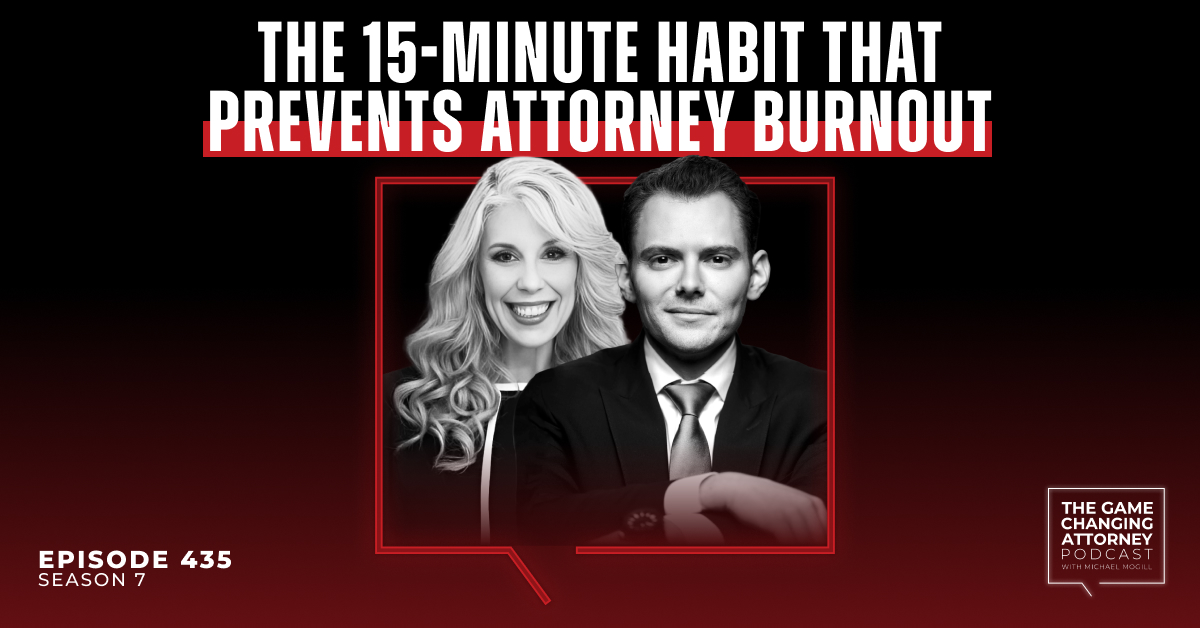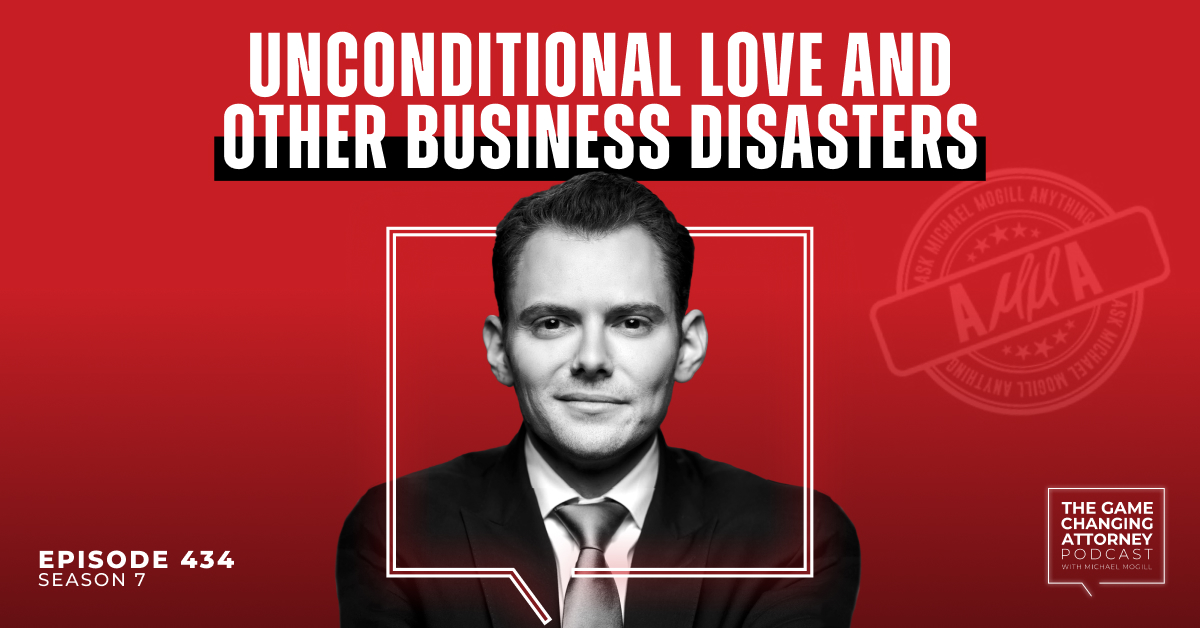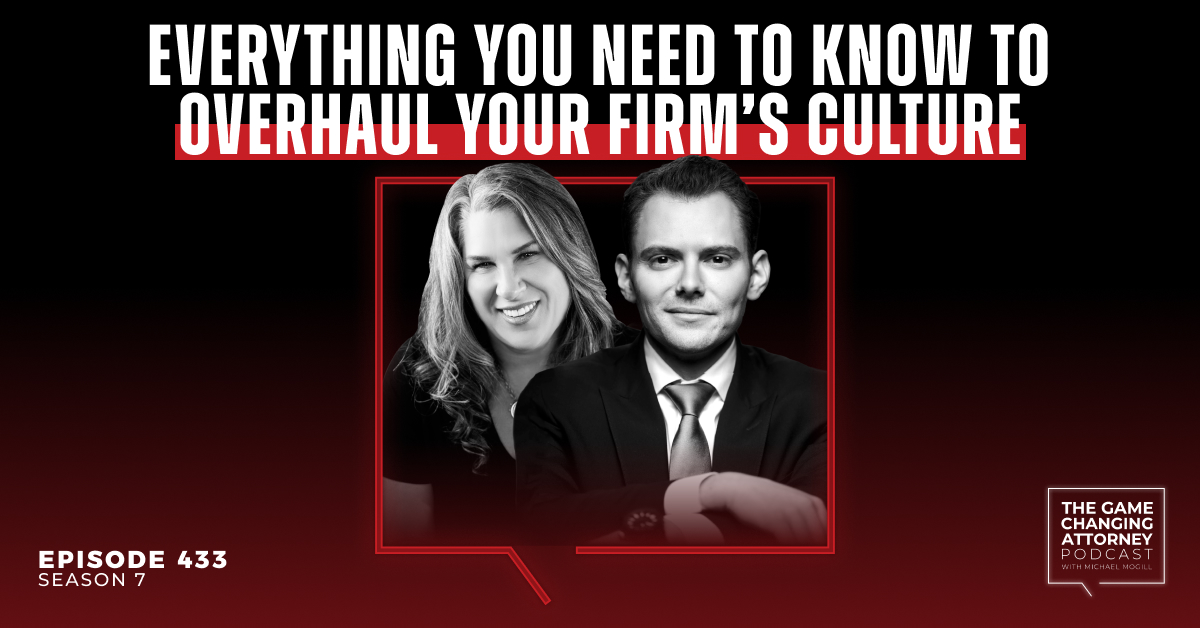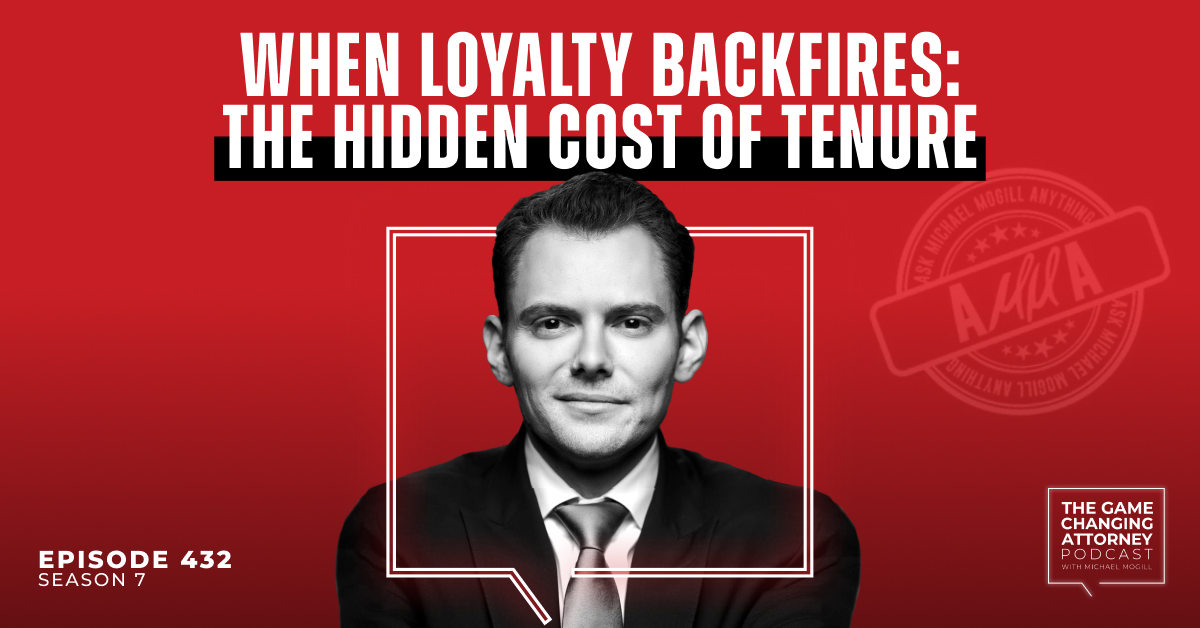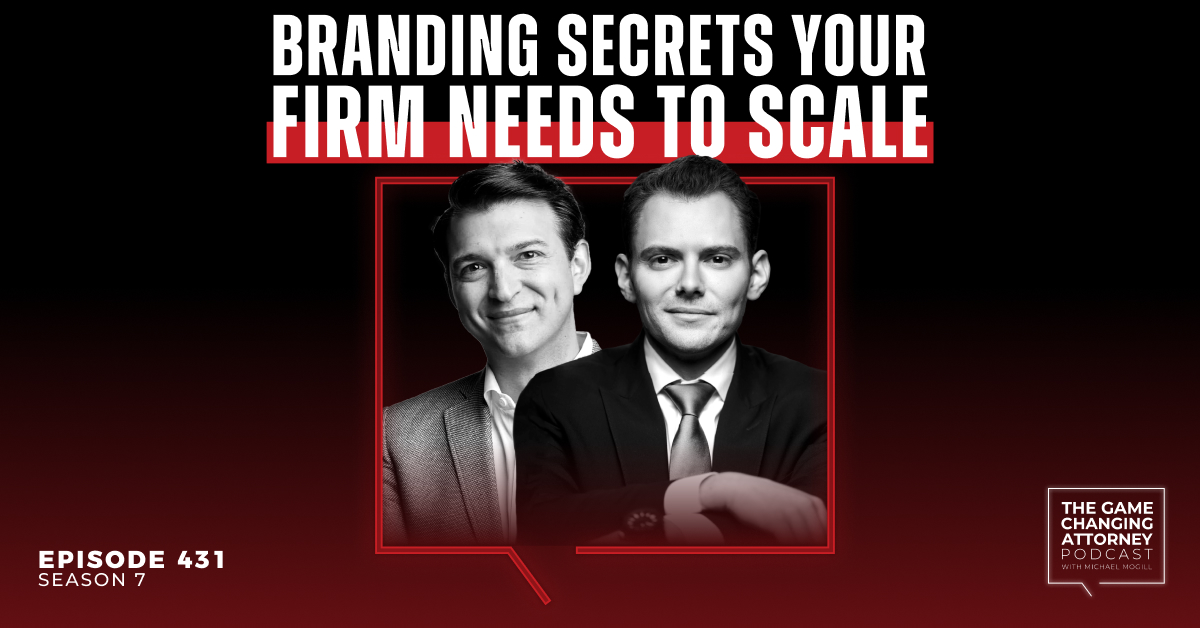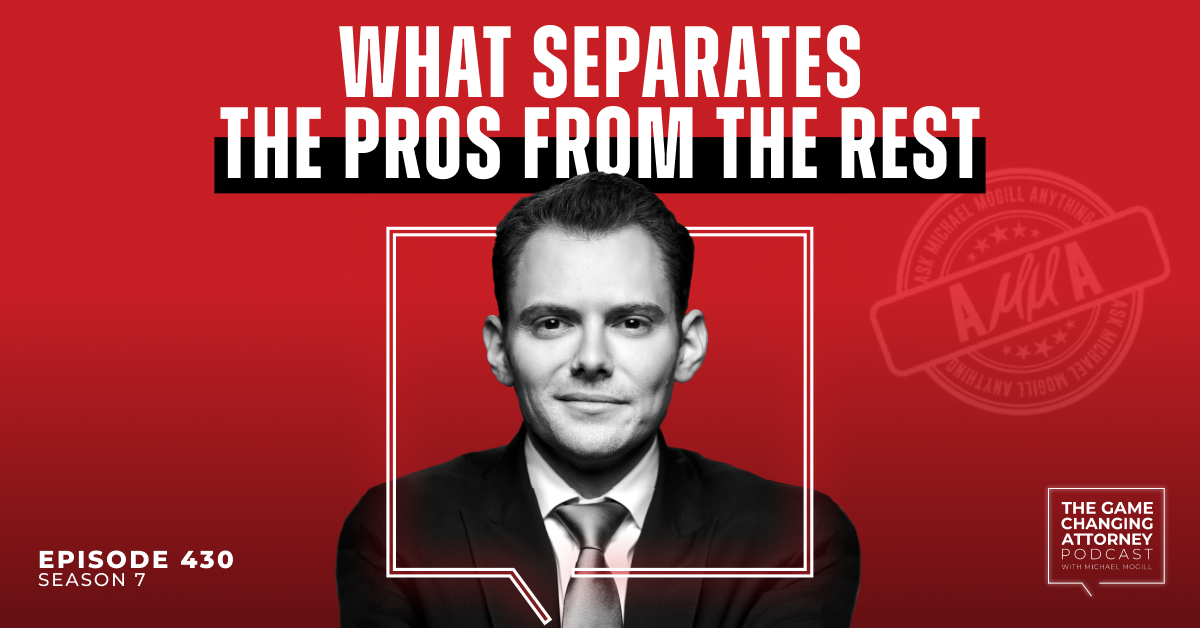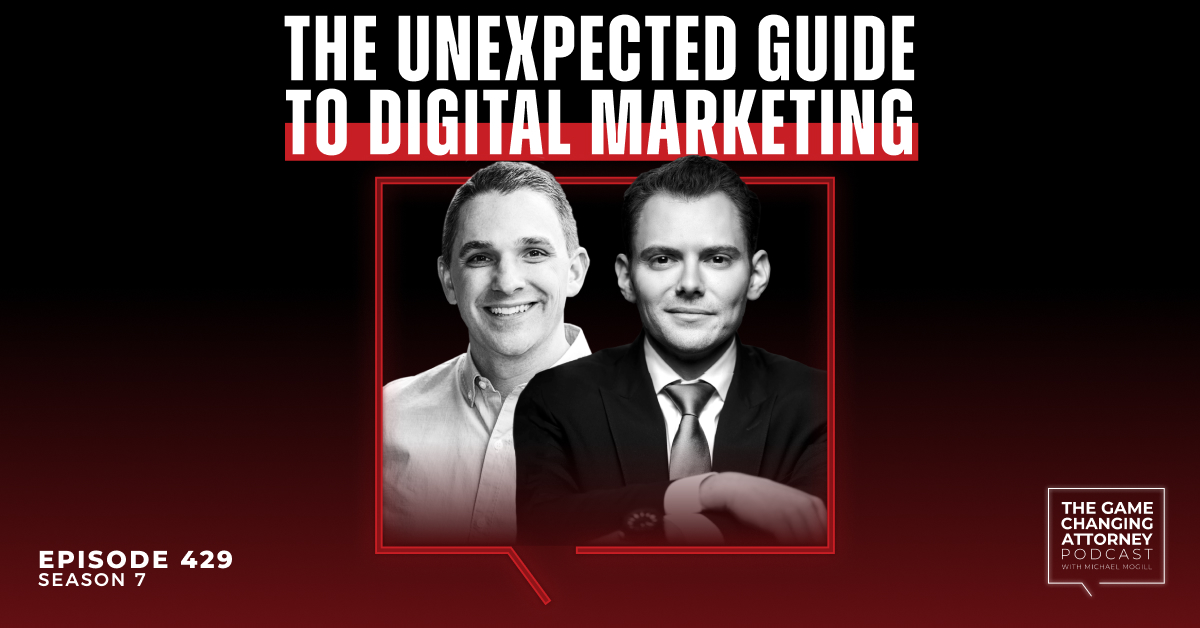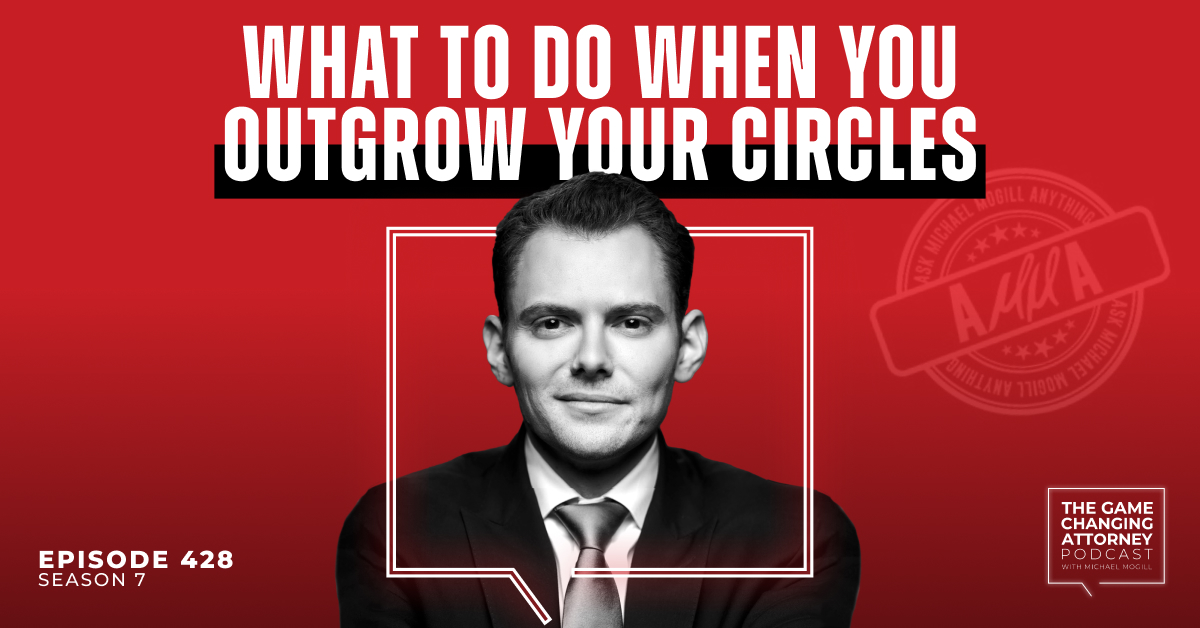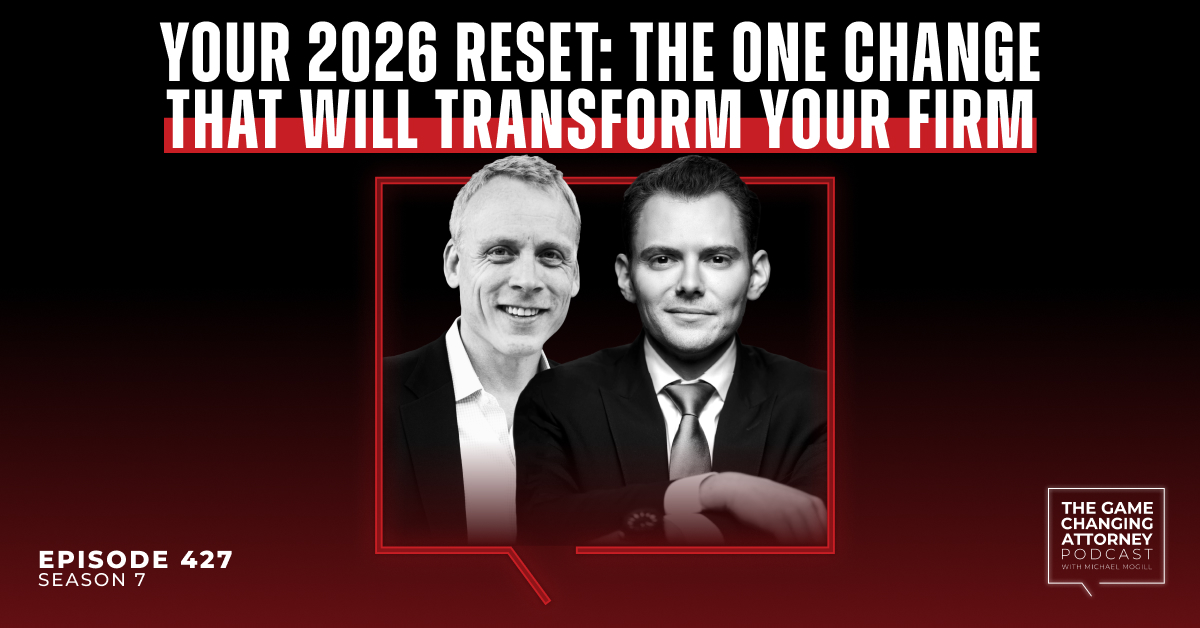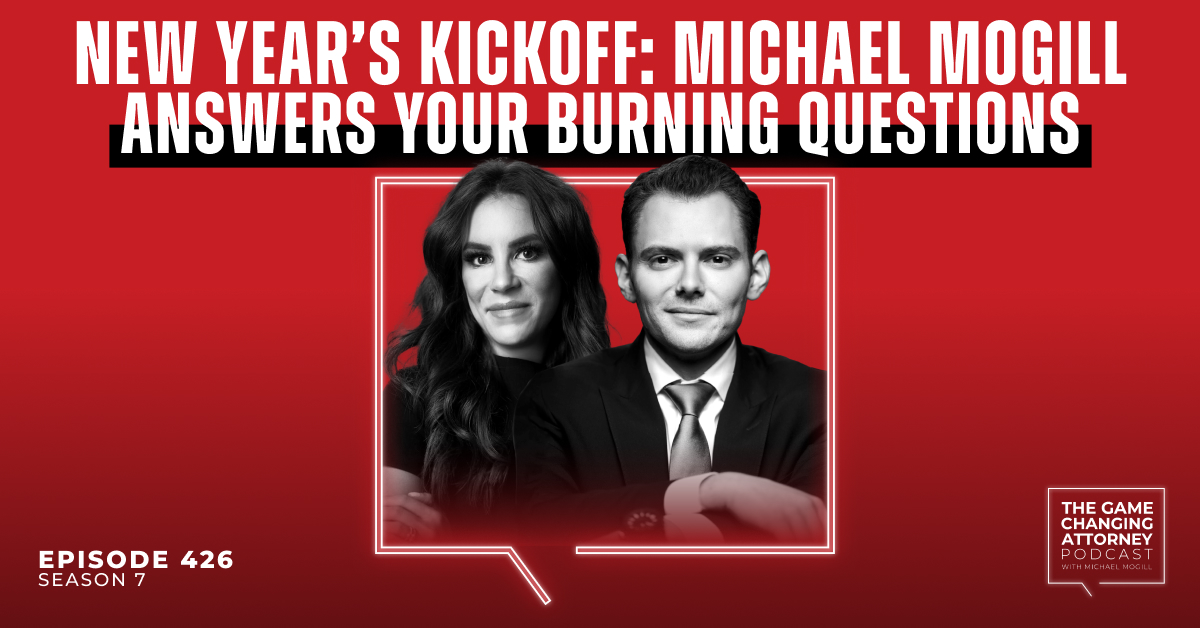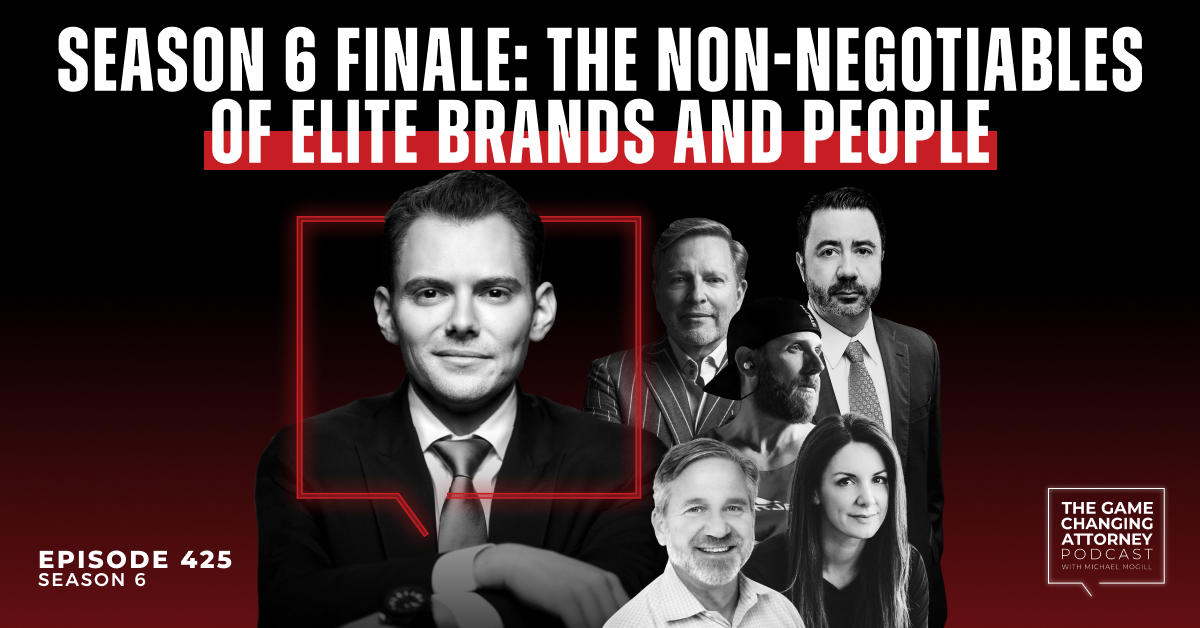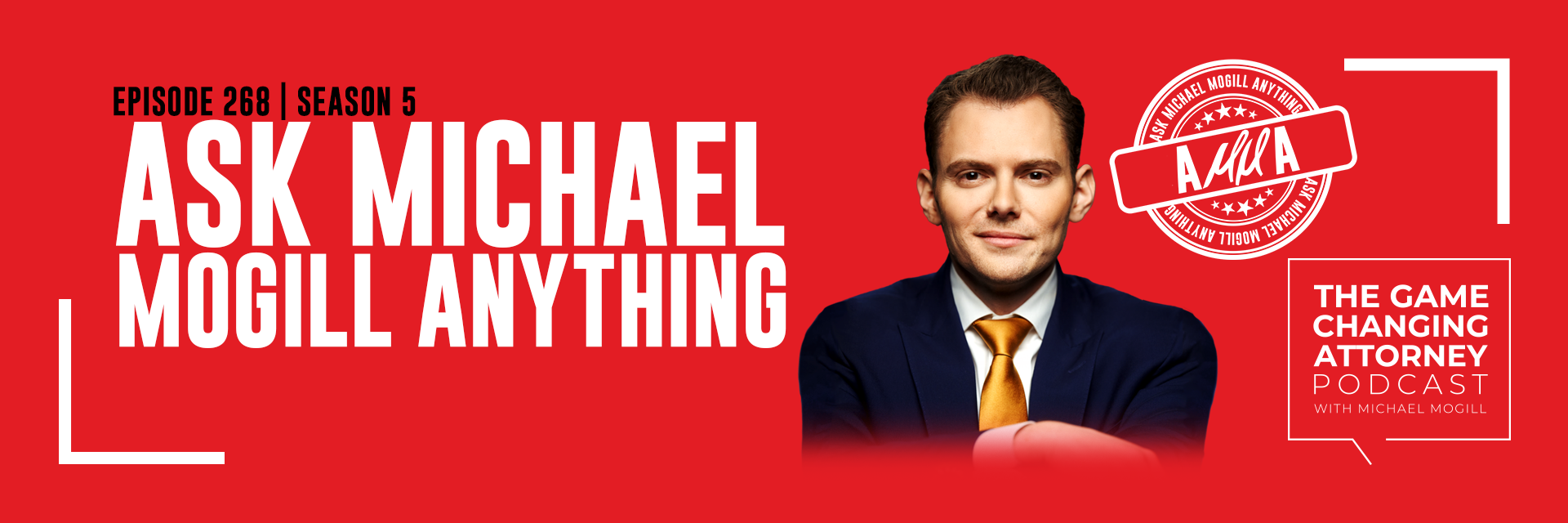
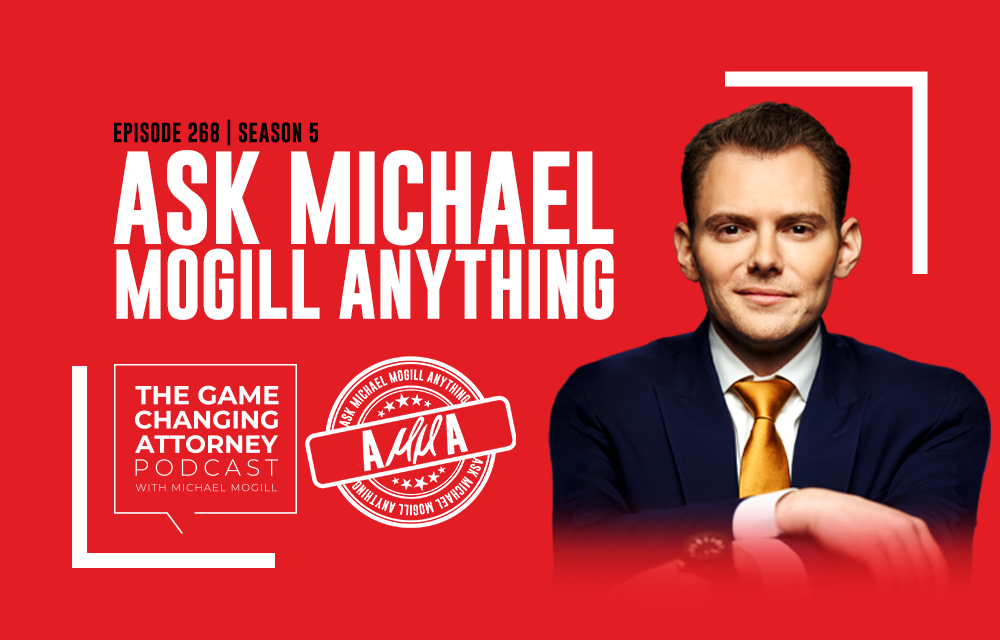
Episode 268 — AMMA — Resilience in the Face of Uncertainty
Feeling crushed by life’s relentless unpredictability? Brace yourself as we expose the brutal challenges of navigating the unknown — and unveil the game changing strategies that will forge unbreakable resilience in the face of chaos.
In this episode of The Game Changing Attorney Podcast, Michael and Jessica Mogill are tearing into:
- The razor-thin line between possessing all the information and taking decisive, proactive action
- The critical techniques to respond with cold, hard logic instead of succumbing to emotional turmoil in high-stakes scenarios
- How to dominate uncertainty with unwavering confidence and crystal-clear clarity
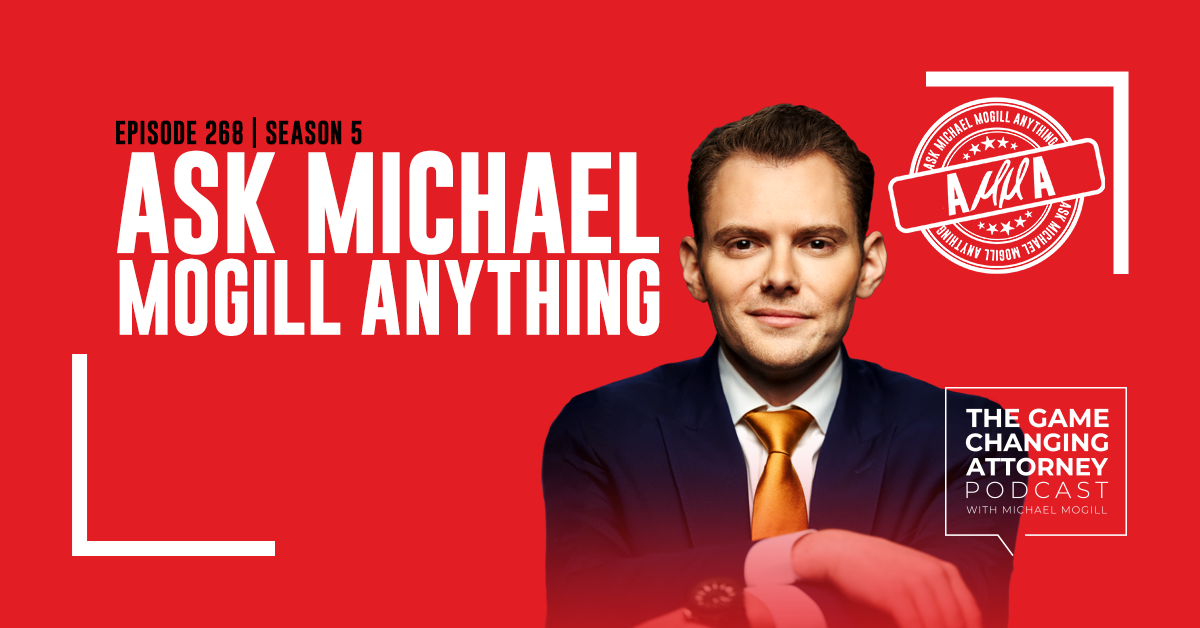
Listen & Subscribe
Show Notes:
Indecisiveness is weakness. “It is the ultimate weakness as a leader to be indecisive. Failing to make a decision because you don’t have enough information, procrastinate, or want to wait it out to see what happens will result in missed opportunities. That’s a very passive approach. There’s the saying, ‘The best defense is a great offense.’ In business, if you’re constantly finding yourself playing on the defensive, that’s going to be probably in correlation with a very low growth rate or no growth rate whatsoever. Alternatively, if you’re on offense, then you’re innovating. You’re developing new things within your firm. You’re developing new capabilities and new skill sets. You’re growing and improving. If you’re playing not to lose, your growth will be immediately limited versus another firm owner who’s playing to win. However, that doesn’t mean you should start spending money all over the place or treating it like pasta and throwing it up to see if it sticks. It doesn’t mean you’re making decisions without any sort of judgment, insight, or information. Rather, it’s ensuring that you’re properly evaluating the upsides, the downsides, and the probability of each potential outcome.”
Responding vs. reacting. “When you’re faced with something completely unexpected, respond logically instead of emotionally. Viktor Frankl wrote about this and said that between stimulus and response, there’s this space. If you are faced with a situation, your level of maturity is going to dictate whether you react or you respond. The more space that you can put in there sometimes, the better. You don’t have to react right away. Interpret the information, accept it for what it is, and then ask yourself or your team, ‘What are we going to do? How are we going to respond?’ I’m always working on this. I’m not perfect at this by any means. There are things that get me all fired up or tick me off, and that’s okay. We all have our moments of weakness, but that shouldn’t become who we are and how we make decisions. When you react in some sort of way that makes you lose your temper, or you get angry and it carries into the rest of your day or your action plan after something goes unexpectedly, it is a weakness.”
Locus of control. “There are going to be things that happen in your life that you can’t control. Over the last several months, I’ve known five or six people who have had crazy things happen in their lives — from a really negative health diagnosis to something happening in their home to something happening with their children — and it’s extremely unfortunate. When you look at these types of situations, you can allow them to drive you crazy and you could certainly be negatively affected by them, but you make progress by asking what is within your control and responding in accordance with that. How you respond is within your control. The resources that you leverage are within your control. How you go about solving a problem is within your control. Of course, there are situations or challenges that are outside of our control. Something we all experienced was the pandemic in 2020. We couldn’t control the impact that it was making on people — in our lives and in our businesses — but we could control our response. We could control how we worked with our clients and how we led ourselves then. You will be a far more effective leader by focusing on what you can control during times where things don’t go your way.
The gift of adversity. “Life doesn’t happen to you. It happens for you. There is always a lesson in the setback. There’s always a lesson in adversity. Whenever we experience something negative, I always think, ‘What is the lesson here? How do I need to evolve as a human being to be better? How do I need to grow or improve?’ Those setbacks will become great stories someday, especially when it’s one bad thing happening after the next and you’re getting kicked all over the place. We’ve all been there, and it hurts, but then there’s a lesson there at that moment. If you can respond in the right way, that’s where growth happens. If you whine and complain, then you miss out on all the growth and learning. How many people have you come across that had all these negative things happen to them, or they experienced all this adversity, and they never got the lesson from any of it. They never evolved as human beings. They’re defeated and miserable. Compare them to other people who’ve experienced incredible tragedies and it’s just one bad thing after the next, but they’re so content and have so much energy and gratitude. You can just tell that these are the people who’ve been through some shit, but they’ve taken the right lessons away from all of it and it’s made them better and stronger.”
The paranoid survive. “I constantly think about how I would put Crisp out of business. What are all of our vulnerabilities? What are all the kinds of things that could hurt us or take advantage of us? What impact does AI, the election, inflation, the job market, and remote work have on our business? I think about a thousand things like this all the time. In my journal, I will write these things out and then brainstorm how I, as a competitor, would cast out Crisp. I’ll envision all sorts of scenarios. Maybe they’ll say, ‘We don’t need you anymore,’ and I have to build a competing business that wins. I map out what I’d do if I didn’t have the resources or the brand. You have to basically create contingency scenarios by saying, ‘If this happens, then I’ll do this,’ or, ‘If that happens, I’ll do this.’ As you get through more and more scenarios, it becomes less about the individual scenario and more about your overarching approach to responding to the things you can’t anticipate. These are like Black Swan events where no level of preparation is enough. However, the more you go through these scenarios, you start to realize that everything is figure-outable.”
RESOURCES & REFERENCES
YouTube
Principles by Ray Dalio
Man’s Search for Meaning by Viktor Frankl
The Miracle Morning by Hal Elrod
Black Swan events
Charlie Munger
Connect with Michael
- Text directly at 404-531-7691

